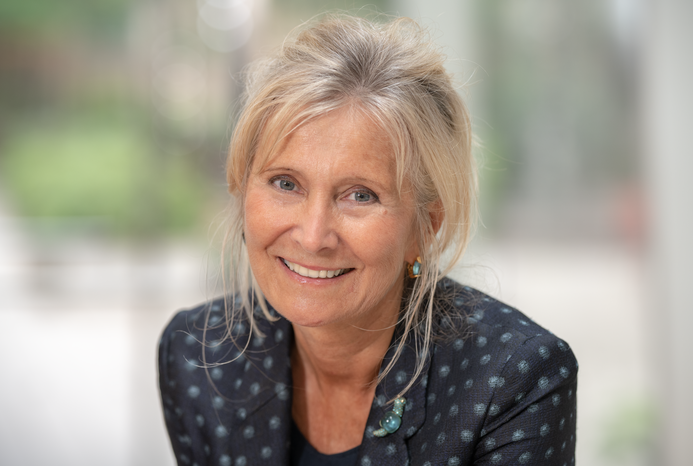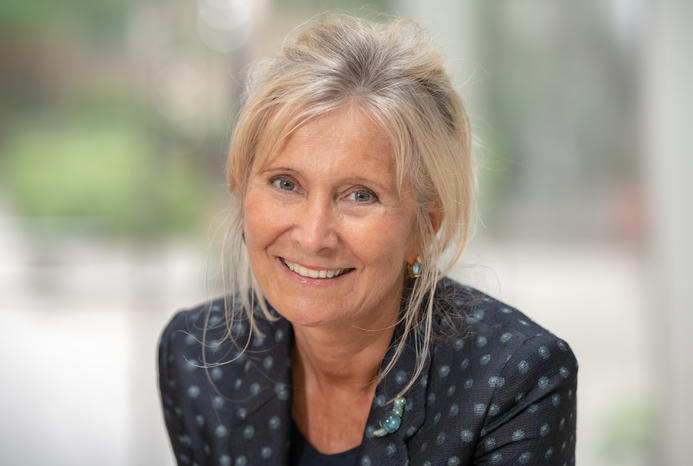
EIPM Member Dr. Silvia Formenti Elected to National Academy of Medicine!
Dr. Silvia Formenti, chair of the Department of Radiation Oncology and the Sandra and Edward Meyer Professor of Cancer Research at Weill Cornell Medicine has been elected to the National Academy of Medicine.
One of the most prestigious honors in health and medicine, the academy recognizes individuals who have demonstrated outstanding professional achievement and made major contributions to advancing the medical sciences, health care and public health.
 “I’m very grateful, because it’s one of the highest recognitions a physician can ever receive,” said Dr. Formenti, also radiation oncologist-in-chief at NewYork-Presbyterian/Weill Cornell Medical Center. “But I don’t feel any significant achievement is ever the result of a single person—it’s always a team. Throughout my career in medicine, I have had original ideas but, most importantly, I was lucky to be able to inspire and lead many outstanding colleagues and trainees.”
“I’m very grateful, because it’s one of the highest recognitions a physician can ever receive,” said Dr. Formenti, also radiation oncologist-in-chief at NewYork-Presbyterian/Weill Cornell Medical Center. “But I don’t feel any significant achievement is ever the result of a single person—it’s always a team. Throughout my career in medicine, I have had original ideas but, most importantly, I was lucky to be able to inspire and lead many outstanding colleagues and trainees.”
A Novel Approach Combining Radiation and Immunotherapy
A recognized leader in radiation oncology and breast cancer research, Dr. Formenti’s innovative work has transformed the paradigm in radiation biology, identifying the important inflammatory and immunological effects triggered by ionizing radiation. She led the team that first demonstrated, preclinically, the effectiveness of combining focal radiotherapy with immunotherapy to control cancer cell growth in solid tumors.
When combined with immune checkpoint inhibitor drugs, targeted radiotherapy can harness patients’ immune systems to attack their tumor, resulting in a form of personalized immunotherapy. Dr. Formenti has translated these discoveries into clinical trials in metastatic solid tumors such as breast and lung cancer, as well as in brain metastases.
“In 2004, we were the first to publish a paper connecting the systemic effects of radiation on the immune system,” she said. “Now there are thousands of protocols investigating how to best combine radiation therapy with immunotherapy to develop more effective treatments.”
Board-certified in medical oncology, radiology and radiation oncology, Dr. Formenti earned her medical degree from the University of Milan and spent her early career in Italy and at University of Southern California (USC), where she worked in a cancer immunology laboratory. She believes her years of interdisciplinary education “served me a great deal to look at things from different angles and appreciate the relevance of the immune system in cancer,” she said.
But, intrigued by the focal effectiveness of radiotherapy that results in local tumor control, since her first R01 at USC, she hypothesized a more systemic effect, and concentrated her research in radiation oncology to elucidate it. After 15 years at NYU Langone’s Perlmutter Cancer Center, where she was professor and chairman of radiation oncology, Dr. Formenti came to Weill Cornell Medicine in 2015.
“I’m happy I did,” said Dr. Formenti, who is also associate director for translational medicine at the Sandra and Edward Meyer Cancer Center and a member of the Englander Institute for Precision Medicine at Weill Cornell Medicine. “Weill Cornell gave me the opportunity to successfully recruit and build a very strong laboratory science program as a platform for translation to the clinic. And it keeps growing.”
Dr. Formenti’s research has led to more than 320 published manuscripts in prestigious journals, and since joining Weill Cornell Medicine she has been leading 18 investigator-initiated clinical trials. A fellow of the American College of Radiology, American Association for Cancer Research and ASTRO, Dr. Formenti has been awarded numerous federal and foundation grants and including the Chemotherapy Foundation’s Ezra Greenspan Award and the American Society for Radiation Oncology (ASTRO) Gold Medal Award, the highest recognition in the field of radiation oncology.
Her next “top goal” is to shepherd to completion a five-year, international effort to investigate the effects of the immune response in irradiated rectal cancer. Funded by an $8.1 million grant from the National Cancer Institute of the National Institutes of Health, the research—scheduled to end in 2027—involves basic and clinical investigators from seven academic centers already engaged in the field of radiation and immunity research.
“At the same time, breast cancer remains my obsession, and there are still many paths to explore,” Dr. Formenti said. “So, the honor of the National Academy of Medicine cements my motivation to advance research, because I feel there is so much work left to be done.”
# # #
The edited article above originally appeared on the Weill Cornell Medicine Newsroom website on October 21, 2024.
